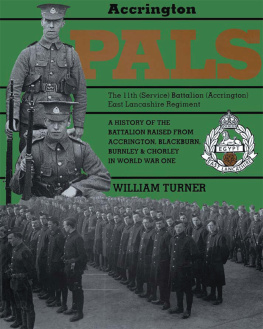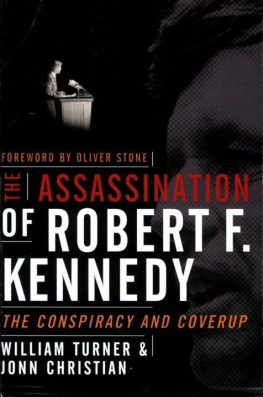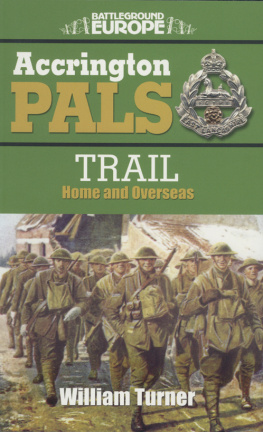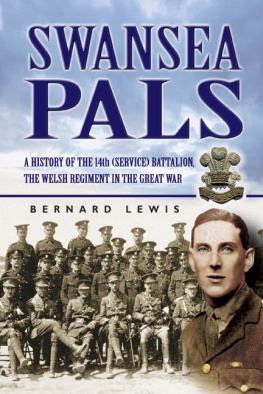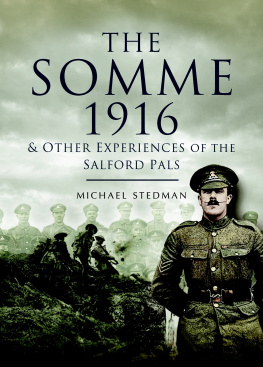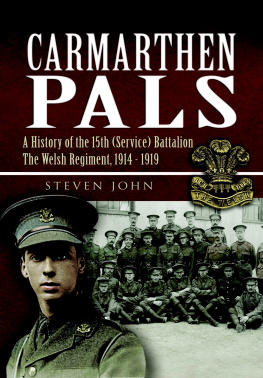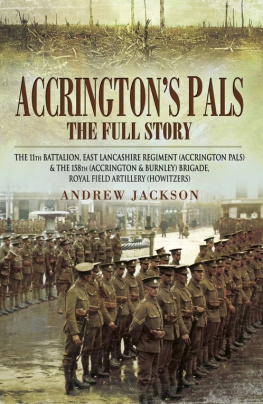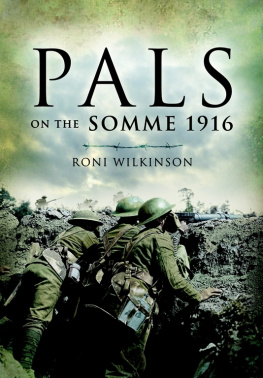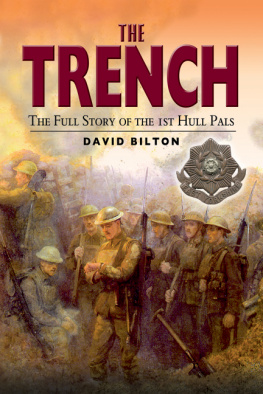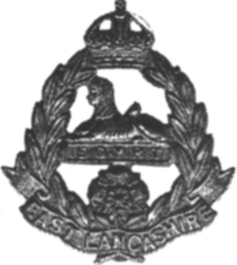PALS
The 11th (Service) Battalion
(Accrington)
East Lancashire Regiment
WILLIAM TURNER
Additional research
FERGUS REED
Pen & Sword Books Limited
This book is dedicated to the memory of those
men who served in the Service Battalion known
as the Accrington Pals.
First published in 1987 by Wharncliffe Publishing Limited
Second impression 1992
Third impression 1998
Published by Leo Cooper
an imprint of
Pen & Sword Books Limited
47 Church Street, Barnsley
South Yorkshire S70 2AS
William Turner 1987, 1992, 1998
ISBN: 0-85052-360-5
Printed by Yorkshire Web, Barnsley
Front cover: The Hindle brothers,
Clarence (standing) and John,
members of X (District) Company.
Also available in the same series:
Barnsley Pals:The 13th & 14th (Service) Battalions (Barnsley)
The York & Lancaster Regiment by Jon Cooksey
Sheffield City. The 12th (Service) Battalion (Sheffield)
The York & Lancaster Regiment by Paul Oldfield and Ralph Gibson
Liverpool Pals:A History of the 17th, 18th, 19th & 20th (Service)
Battalions The Kings (Liverpool Regiment) by Graham Maddocks
Leeds Pals:A History of the 15th (Service) Battalion The Prince
of Waless Own (West Yorkshire Regiment) by Laurie Milner
Salford Pals:A History of the 15th, 16th, 19th & 20th Battalions
Lancashire Fusiliers by Michael Stedman
Manchester Pals:The 16th, 17th, 18th, 19th, 20th, 21st, 22nd &
23rd Battalions of the Manchester Regiment by Michael Stedman
Birmingham Pals:The 14th, 15th, & 16th Battalions of the Royal
Warwickshire Regiment by Terry Carter
Tyneside Irish:24th, 25th, 26th & 27th (Service) Battalions of the
Northumberland Fusiliers by John Sheen
Tyneside Scottish:20th, 21th, 22nd & 23rd (Service) Battalions of
the Northumberland Fusiliers by Graham Stewart and John Sheen
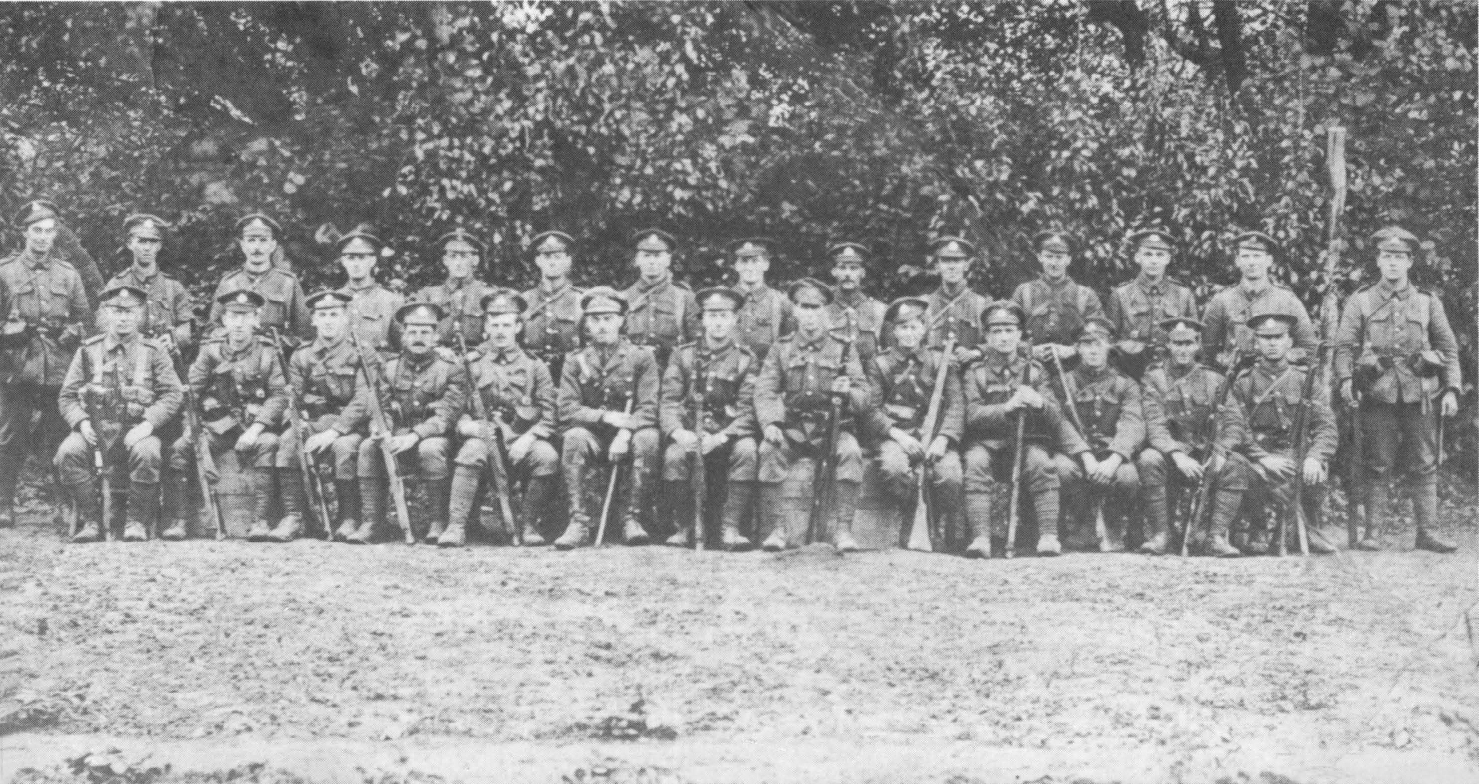
A group of X (District) Company Pals on active service in France.
Contents
And away went
another, a red
horse; its rider was
allowed to take peace
away from the earth
and to make men slay
each other; he was
given a huge sword.
Revelation 6 verse 4
(Moffatt Bible)
PAL
Slang or low colloquial
Romany English: Phal brother, friend
Sanskrit: Bhrator brother
Websters International Dictionary 1961

The industrial town of Accrington at the turn of the century.
Martin Middlebrook
Ive been there, a most striking place, a sad place Serre! The front line trench from which the 11th East Lancashires attacked on the first day of the battle of the Somme is still there, a grassy zig-zag, clearly a trench, just on the edge of a wood up a farm track. The 11th East Lancashires were, of course, the Accrington Pals. Unfortunately, the place where their old front line trench is to be found is now called the Sheffield Memorial Park. But the Sheffield unit did not attack from this stretch of front line. Their sector was a short distance to the north, but post 1918 Sheffield established their Memorial Park nearer the track up which the visitors would have to come. Accrington must have been asleep and made no protest.
In many ways the Accrington Pals were typical of Kitcheners New Army of volunteers in 1914, but that local enthusiasm seems to have had a harder time in getting its Pals Battalion accepted by the War Office. Bill Turners book will describe the difficulties. In the post-war period, Accrington could not seem to stir itself to provide any memorial at the place where the Pals suffered so terribly on the Somme.
An Accrington man has produced a different type of memorial, a well researched history of the Pals which deserves wide circulation and support, not only in Accrington but further afield. I congratulate Bill Turner and most willingly commend his work.
Accrington, East Lancashire, in the high hot summer of 1914 was a town of 45,525 people. A town famous for textile machinery, bricks and its football team. Howard and Bulloughs, makers of textile machinery, sold and installed thousands of machines, world-wide, every year. Seven collieries and thirty-two cotton mills completed the industrial basis of the towns economy.
Accrington was a prosperous town. The Borough Treasurer presented the most gratifying report on our financial position in thirty years an excellent state of affairs. In a prosperous town there were many poor, the margin separating working people from want and hunger desperately narrow. Accrington, as other industrial towns in Britain in 1914, had its bad housing and poverty but its parks and open spaces, along with easy access to open countryside, helped to make it a comparatively pleasant town. It had a considerable civic pride in its good reputation and achievements.
On June 27th, 1914, one of the cotton mills closed for six weeks because of lack of orders, putting five hundred men and women out of work. The closure came as no surprise. Orders for cotton cloth weaving had been falling for many months as part of a general decline in the British cotton industry. Other mills announced the extension to two weeks of the annual one weeks, unpaid holiday. The news added to the cotton workers growing fears about the future for themselves and the industry.
Engineering workers in the town were also restless for a different reason. In early June, 1914 simmering unrest by the skilled employees about low wages at Howard and Bulloughs culminated with a formal request for a ten per cent increase in wages. Saturday June 27th arrived with no reply from the employers. Feelings ran high, nothing it seemed could prevent a strike. The employees decided on a final dead-line of July 1st.
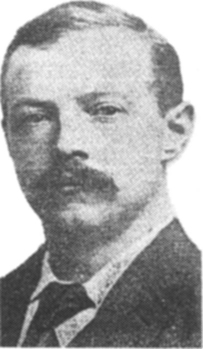
Mr Tom Bullough, Chairman of Directors of Howard & Bulloughs, a family firm founded in 1856. A.O.&T.
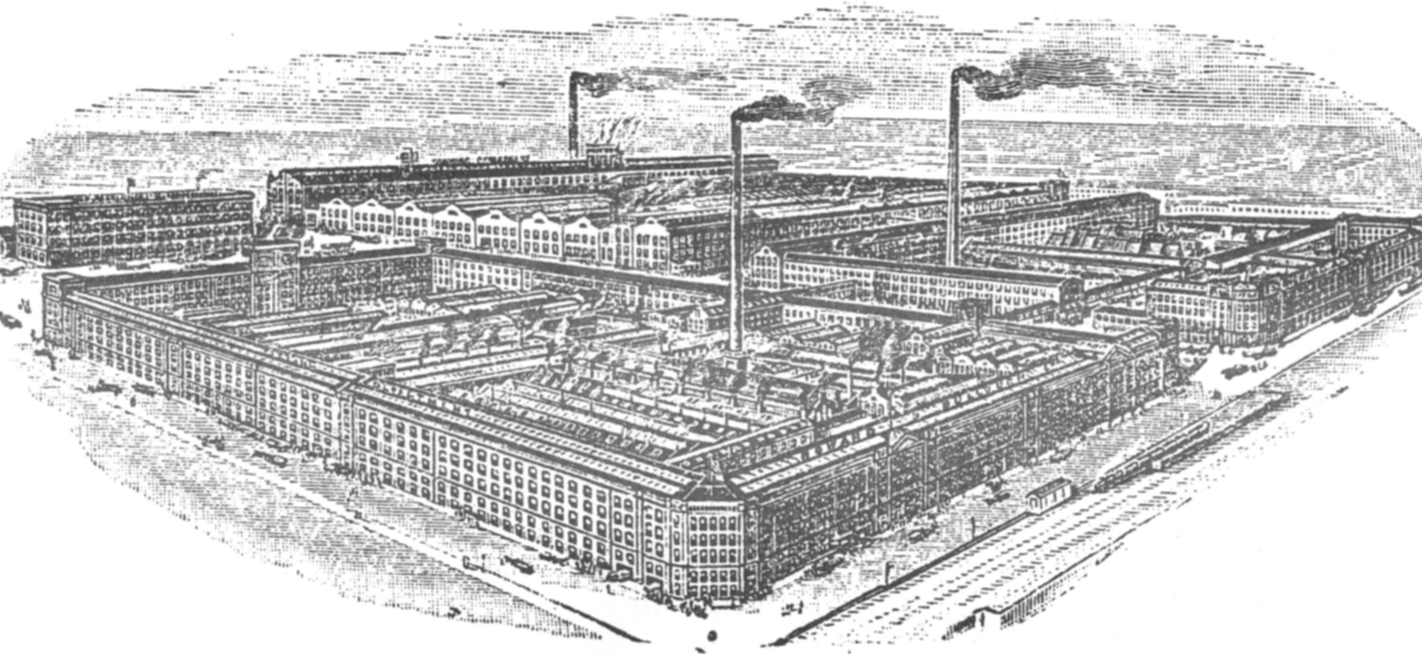
An artists view of Messrs. Howard and, Bulloughs Ltd, Globe Works, Accrington, as featured in a 1914 advertisement. Notwithstanding some artistic licence the works was large enough to employ over 4,000 men and boys. A.O.&T.
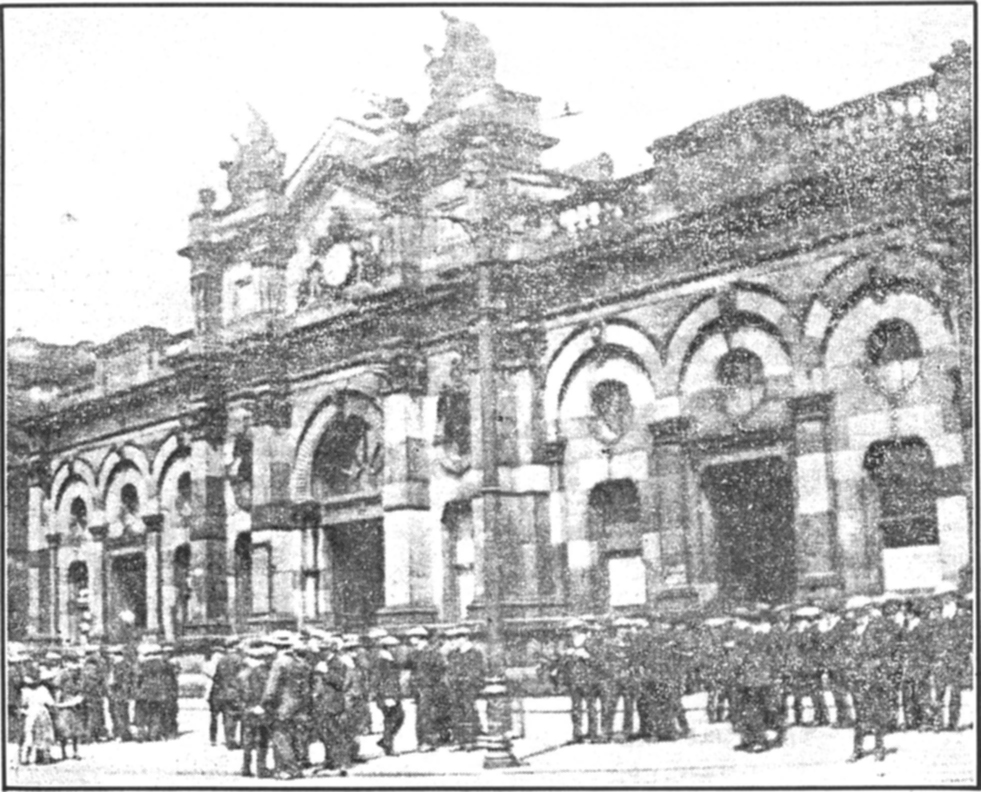
Groups of engineers from Howard and Bulloughs discuss the strike outside Accrington Market Hall. A.O.&T.
Meanwhile, on Sunday June 28th, whilst East Lancashire enjoyed the hottest day of the year, in Sarajevo, Bosnia, the heir to the throne of Austria-Hungary, Archduke Franz Ferdinand along with his wife died, the victims of an assassination plot. Balkan quarrels meant little to most in Accrington so the news received but passing interest the following day. At the Empire Picture Palace, the weeks film, A King in Name Alone, coincidentally shared its opening night with the news, the film was proclaimed as a strong drama set in South Eastern Europe showing the secret springs of intrigue and plot to overthrow a dynasty. The real-life attempt to overthrow a dynasty gave the film a measure of publicity. Concern, however, centered more on Wednesday July 1st.

